Ever since I began my journey into this glittering world of gems and jewellery, it has been my dire wish to witness Diamond mining. Little did I know that my interaction with the President of the Republic of Botswana, Dr Mokgweetsi Eric Keabetswe Masisi would make this dream come true, and in a way that is larger than life!

I was invited at the De Beers Diamond week in Botswana, during which a trip to the Orapa Open Pit Diamond Mine was scheduled. Let me share with you my experience during the visit.
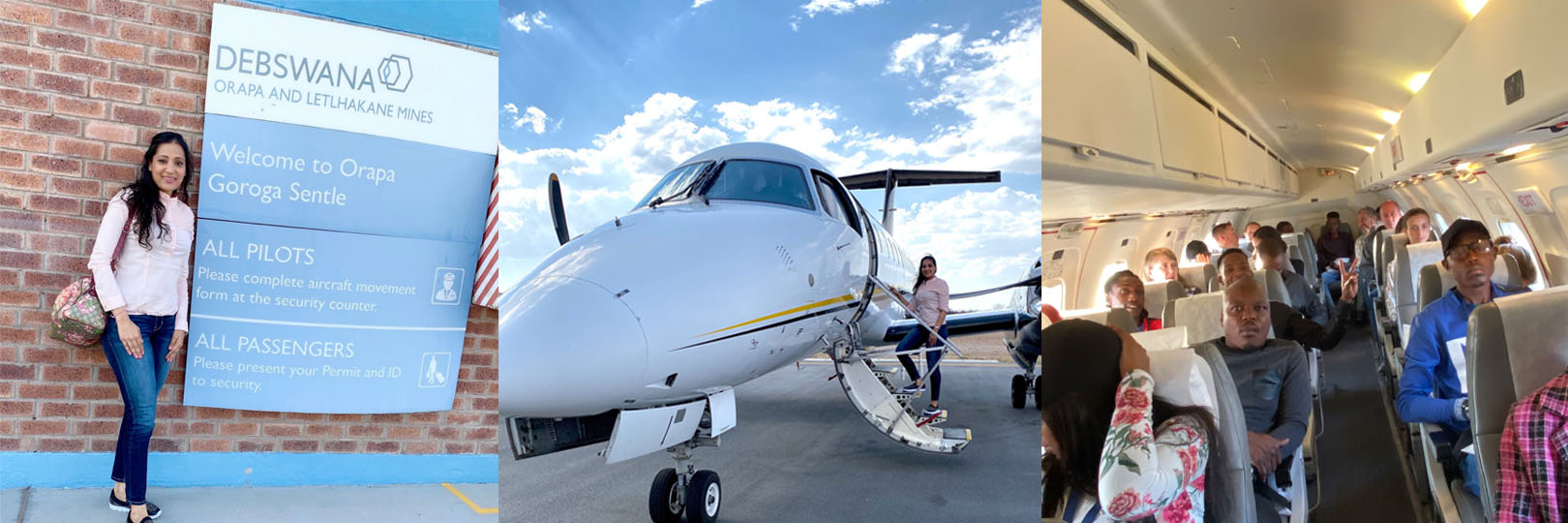
We were flown on a private aircraft to Orapa. Safety is taken very seriously of all the employees at the mines. People being the most valuable asset, a culture of Zero harm is adopted, causing no harm to the employees and the environment. All accidents are preventable by monitoring every movement of the machines.
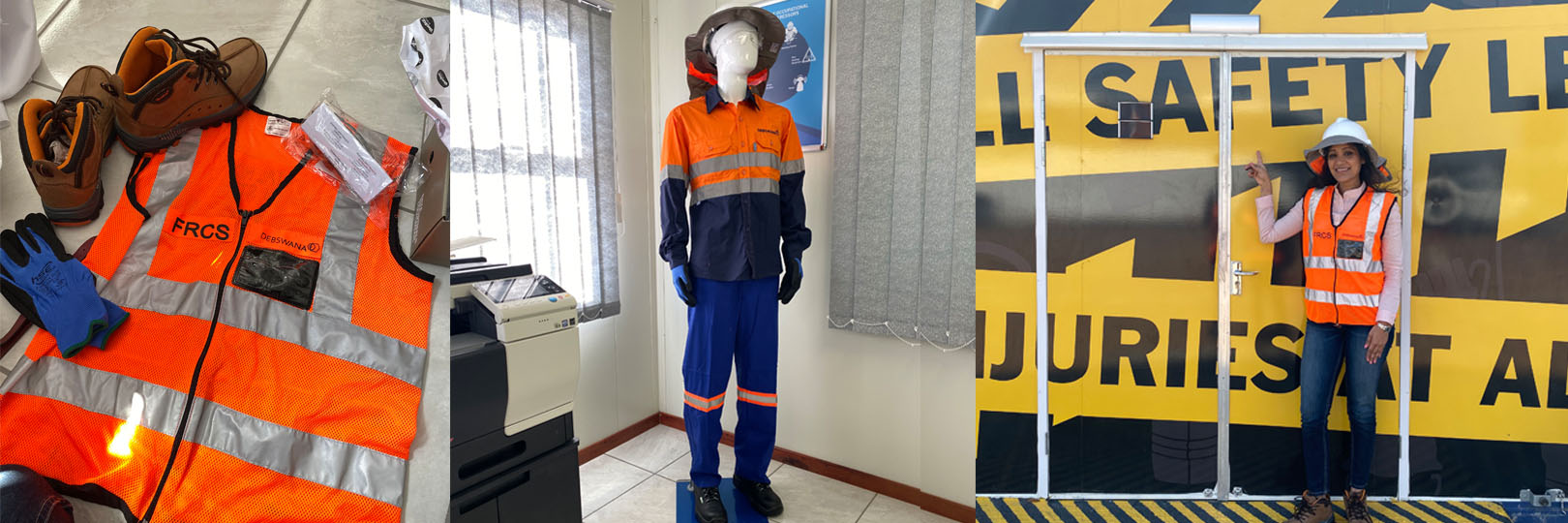
We were briefed about safety induction and a quick overview of Kimberlite pipes and operations at the mines.
Very specific volcanic eruptions called kimberlite eruptions brought the diamonds from the earth’s mantle to the surface over a hundred million years ago. Heat and pressure from the earth crystallize carbon into rough diamonds.
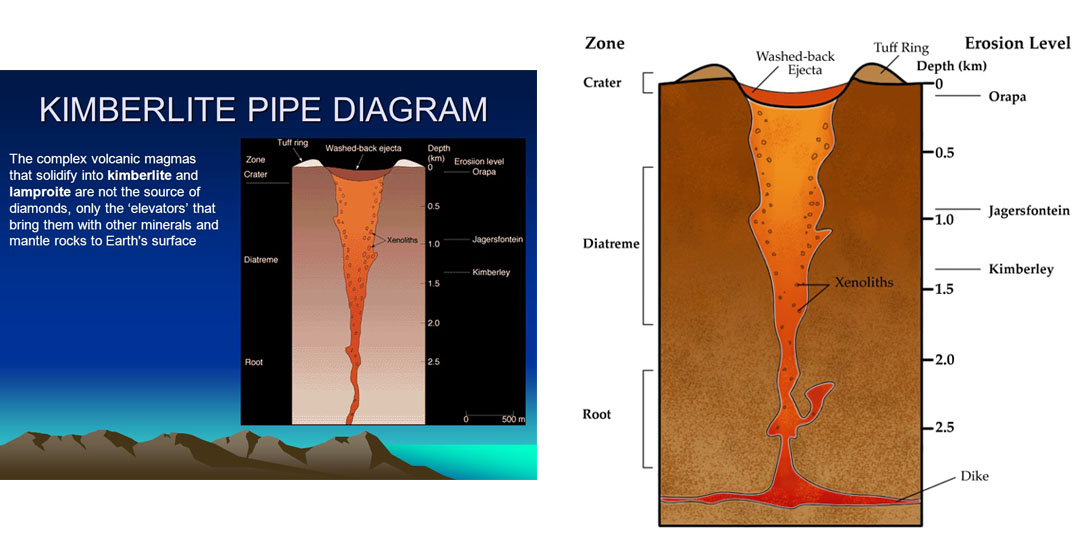
The ore in the pit is broken up by blasting. A single blast can break approx. 3,000 tonnes of ore.
The Damtshaa Diamond Mine: B/K 9
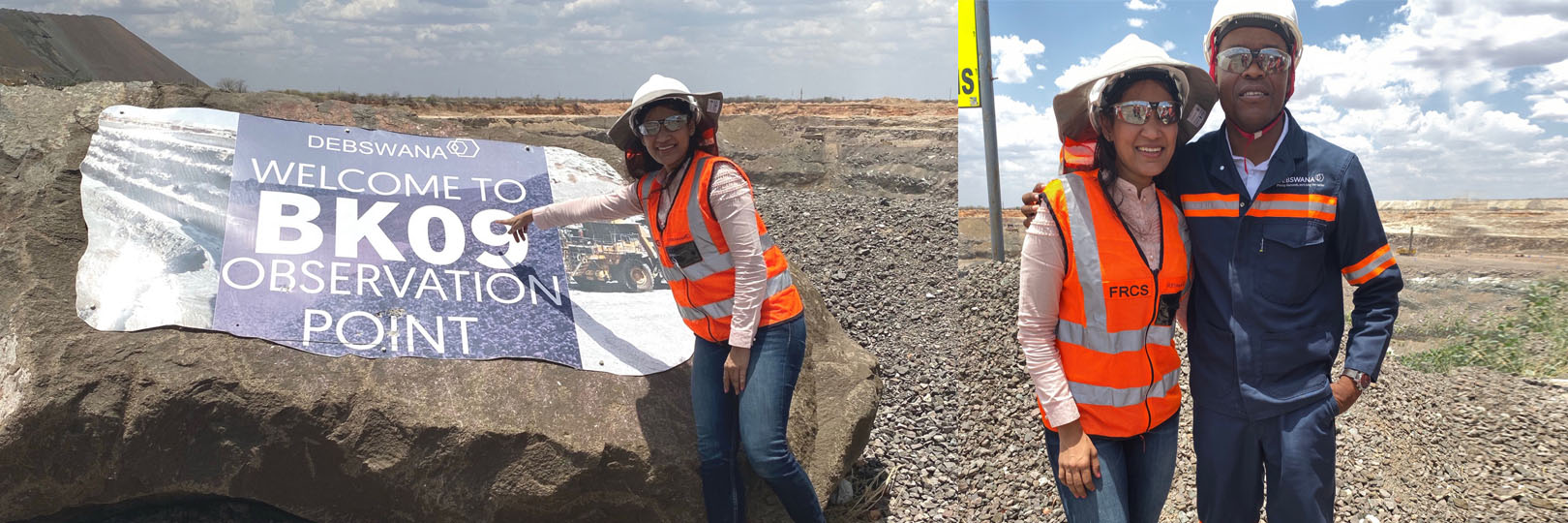
The mining operation manager of the 2 Damshaa mines, Mr Tito Tidimalo briefed us about the operations at the B/K9.
The Damtshaa Diamond Mine: B/K 12
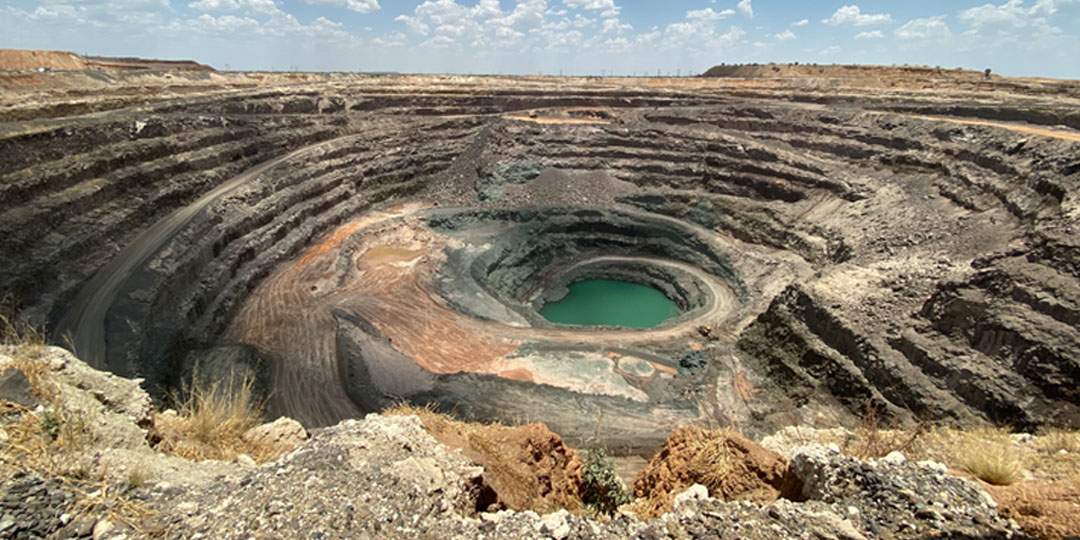
Mr Roderick Kemane briefed us about the B/K12 mine.
Once the ore is broken, excavators load the ore into haul trucks to a primary ore crusher where the diamond extracting process begins.
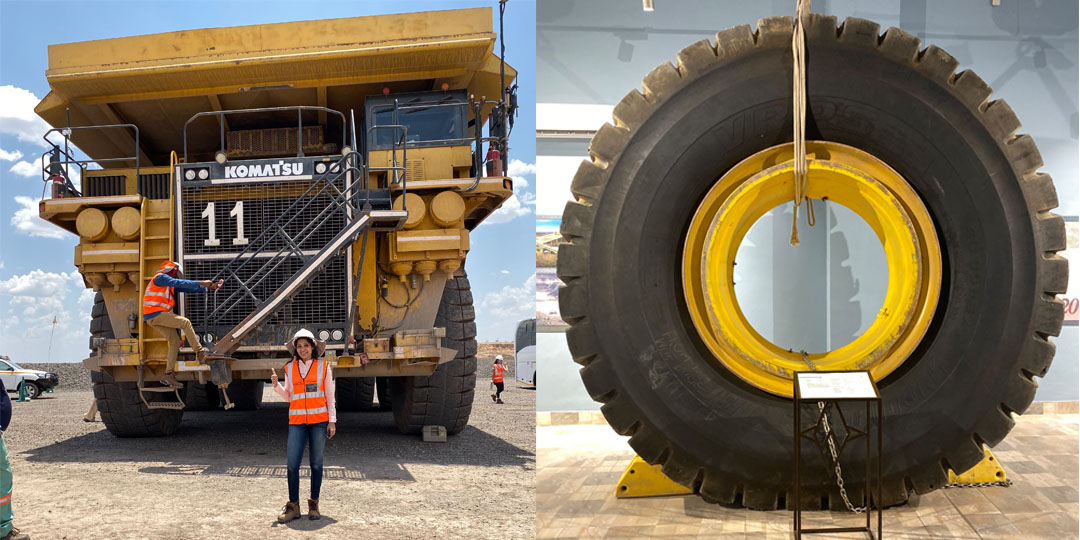
These massive trucks have a gross operation weight about 680 tonnes, measuring 14.8 m in length, 6.52 m in height and 9.75 m in width. The tyres of these trucks are 40.00* 57!
Processing plant
Steps at the Processing Plant are:

1) Primary Crusher:
In this step, diamond-bearing ore is transported to the primary crusher, where the ore is broken down from 250mm to below 150 mm and then fed to the secondary crushing of the plant.
2) Scrubbing, Washing, Sizing:
From primary crushing, the ore is transported to the scrubbers to wash off the clay content and spilt into different fractions using vibration screens.
3) Secondary Crushing:
Here, the ore is further crushed and the crusher gaps for these are between 23mm to 25mm. After crushing, the ore is sent back to washing and sizing, oversize material is sent back for further crushing, the right sized material is sent to Dense Medium Separation(DMS ), and fine material of <1.65mm is sent to thickeners with water.
4) Dense medium separation ( DMS) Plant and Cyclone:
Here, the diamonds are separated from the gravel, using density methods as well as centrifugal and drag forces within the cyclone.
Ferrosilicon Medium: The ore is mixed with heavy ferrosilicon at a density of around 2600/kgm3 and fed to plant where separation takes place. This technology exploits the high density of diamonds as compared to gravel.
Diamond is one of the heaviest minerals known on earth at a density of 3515 kg/mg.
Since diamonds repel water and are drawn to grease, the crushed ones are passed over a grease belt that the diamonds then stick to. They can also be identified under x-rays.
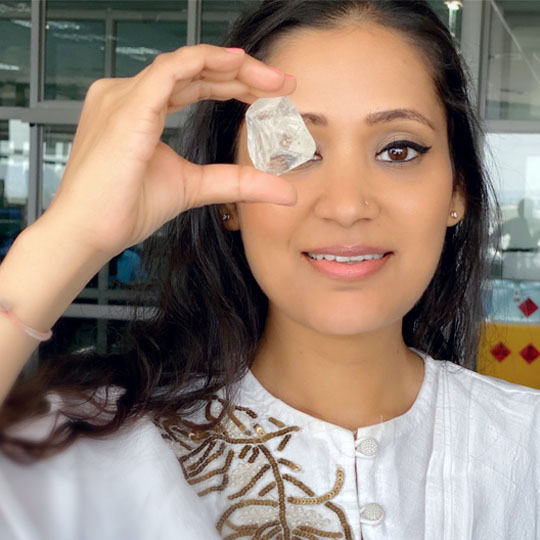
After being recovered, Rough Diamonds are sorted into more than 10,000 categories according to weight, colour and clarity.
Can you believe the effort, hard work and manpower that goes into the process, right from the sourcing from the earth to processing?
I have so much gratitude and respect for all the miners and their family who work day in and day out effortless to source these valuable ore-bearing kimberlite from the earth.
And makes these Ore from the earth Shine for us to be adorned!
I feel so overwhelmed and thankful by the kindness and support of the entire mining team, who took so much interest in sharing insights with us!
DIAMOND IS REAL and RARE
